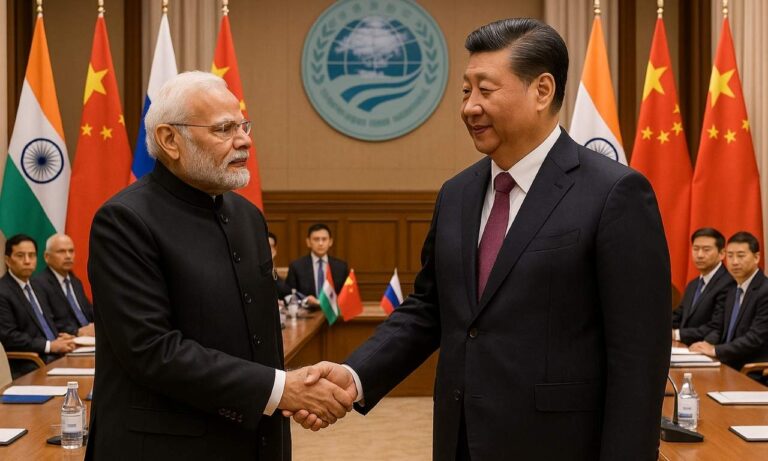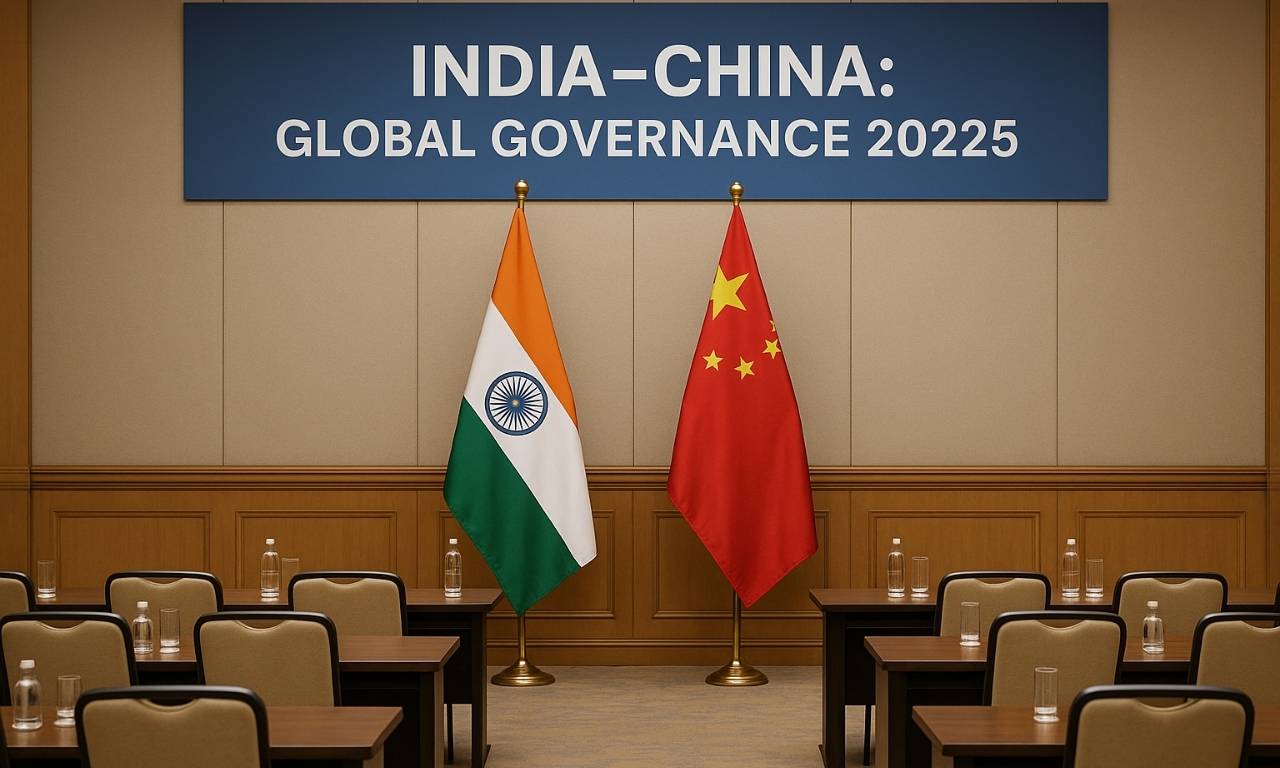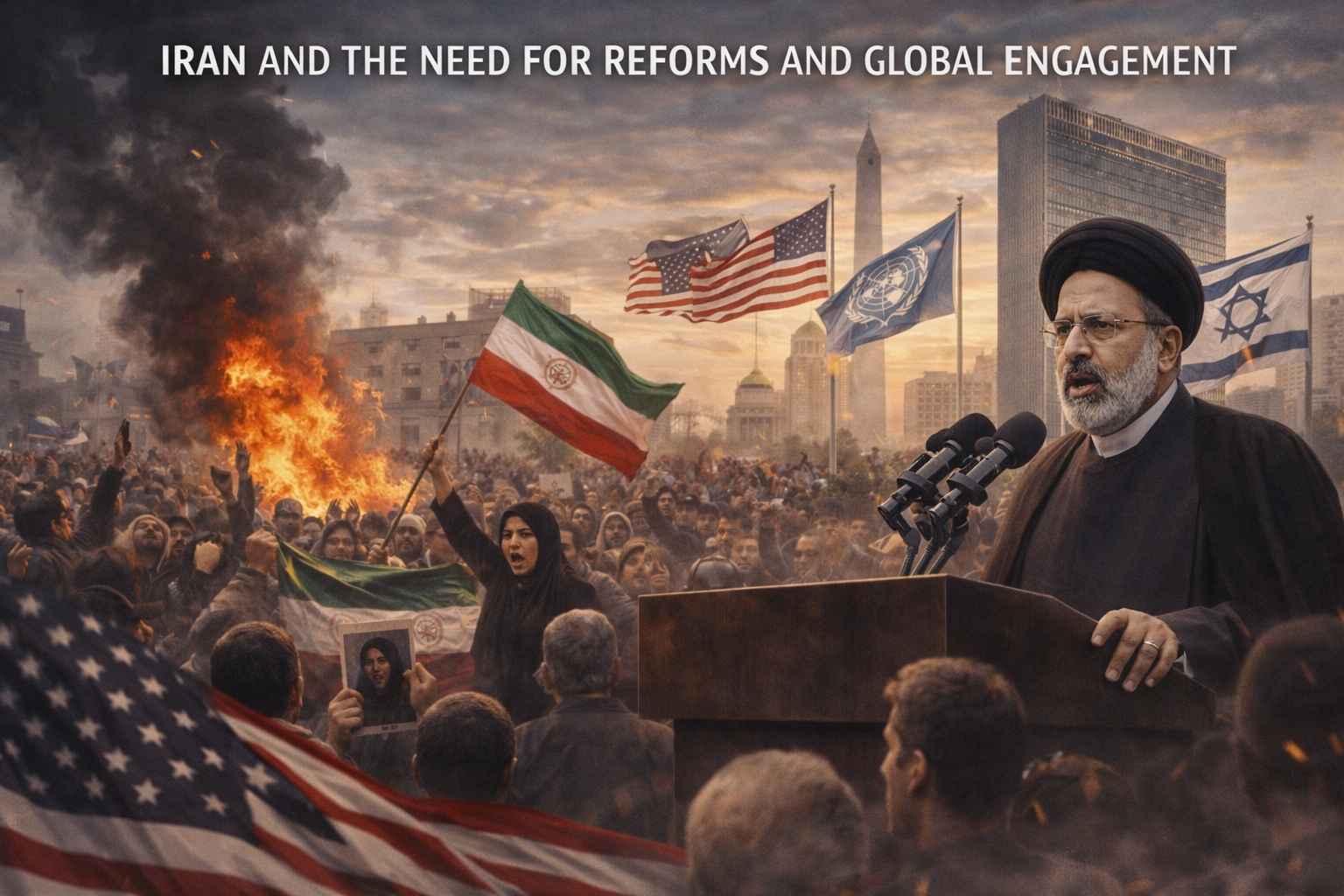The year 2025 marks the 75th anniversary of diplomatic relations between India and China, both nations are being called upon to play a greater role in promoting Global Governance Initiative (GGI) proposed by China at the 2025 Tianjin SCO Summit.
Background
- India and China established diplomatic relations on April 1, 1950, marking 75 years of political, cultural, and economic exchanges.
- From 2014 to 2024, Prime Minister Narendra Modi and President Xi Jinping met 18 times, demonstrating continuity in dialogue despite tensions.
- Their most recent meetings — during the 2023 Johannesburg BRICS Summit and the 2024 Kazan BRICS Summit — emphasized improving ties and coordination in multilateral platforms.

India-China Partnership
- Both nations are key pillars of Asia’s rise and share responsibilities in driving development among Global South countries.
- President Xi stressed four key points for cooperation:
- Deepen strategic trust and communication.
- Enhance economic and cultural exchanges for mutual benefit.
- Address each other’s concerns peacefully.
- Coordinate multilaterally to defend shared interests.
- PM Modi echoed similar views, noting that bilateral relations have stabilized, peace is being maintained at the borders, and direct flights are resuming — signalling normalization.
Global Governance Initiative (GGI) — China’s Proposal
The GGI, introduced at the 2025 Tianjin SCO Summit, is aimed at reforming and strengthening international governance through five guiding principles:
- Sovereign Equality – All nations, big or small, deserve equal respect and participation in decision-making.
- Rule of Law – Uphold the UN Charter and ensure uniform application of international law without double standards.
- Multilateralism – Strengthen the UN system and promote global decisions through cooperation, not domination.
- People-Centric Governance – Global institutions must prioritize the welfare, safety, and development of people worldwide.
- Focus on Real Outcomes – Tackle real-world issues effectively; developed nations must contribute resources while developing nations collaborate.
Significance for India and China
- Both countries, as major players in SCO and BRICS, are expected to lead efforts toward a fairer, multipolar global order.
- The initiative seeks not to replace the current system but to reform and strengthen existing institutions for more inclusive and equitable global governance.
- Joint leadership by India and China could reinforce multilateralism, South-South cooperation, and a balanced world order that serves the interests of all nations.
Conclusion
India and China’s growing cooperation symbolizes a shift toward a more inclusive and multipolar global order. Their joint leadership in reforming global governance can help ensure peace, equity, and shared development for all nations.
This topic is available in detail on our main website.





